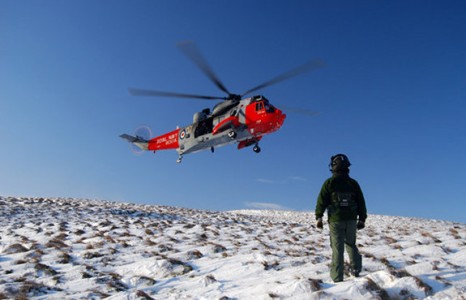When most people think about satellite navigation uses, the first things that come to mind are probably location tracking and navigational directions and instructions for traveling. But, what you probably aren’t even thinking about is one of the more important uses of these satellite systems—search and rescue (SAR) operations.
According to a UPI article, a Honeywell Global Tracking system recently passed the final acceptance test for use with Galileo’s SAR program. The system, which was not named in the article, supposedly can reduce the time it takes to detect and process an emergency signal from several hours to a few minutes.
“Our Medium Earth Orbit-based search-and-rescue solution will lead to faster recovery missions and improved international search-and-rescue operations, and we’re pleased to partner with the European Space Agency to help execute on this important, life-saving system,” David Sharratt, general manager, Honeywell Global Tracking told UPI.
The new Honeywell system will use a combination of Doppler curves, noise reduction and advanced signal processing to determine the exact locations of distress beacons. The system is also able to detect faint signals and faster locate the origin to shave off several minutes in this time-sensitive process, which could save lives.
Europe’s Galileo system is currently still under construction and is expected to be complete sometime after 2020. Galileo will be the world’s first civilian owned and operated navigational satellite constellation and since it’s initial conception has had the goal of being a premier search and rescue resource. Currently, the Galileo system has eight satellites in orbit with an additional four scheduled for launch this year.

